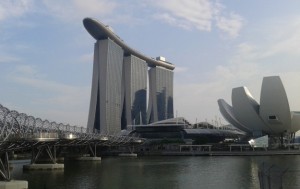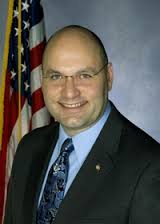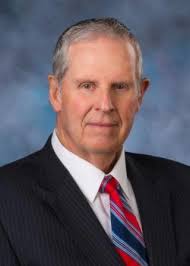It seems more unlikely than ever that Singapore will issue casino concessions after gaming revenues laid an egg in 1Q-3Q/16. For the full year, tourism to Singapore reached record heights, but receipts  for “sightseeing, entertainment and gaming” dropped 16% in the first three quarters. This is especially surprising considering what powered the tourism numbers: Chinese mainlanders, up 36%. (Hong Kong made a weaker contribution, attributable to economic troubles back home.) Singapore raked in $17.5 billion in tourism receipts last year but recorded a substantial caveat in the form of “lower gaming revenue reported by integrated resorts.” Given this lack of bounce from the tourism increase, the government lacks an incentive to authorize more casinos in the city-state.
for “sightseeing, entertainment and gaming” dropped 16% in the first three quarters. This is especially surprising considering what powered the tourism numbers: Chinese mainlanders, up 36%. (Hong Kong made a weaker contribution, attributable to economic troubles back home.) Singapore raked in $17.5 billion in tourism receipts last year but recorded a substantial caveat in the form of “lower gaming revenue reported by integrated resorts.” Given this lack of bounce from the tourism increase, the government lacks an incentive to authorize more casinos in the city-state.
Further south, the detention of The Crown 18 has put a chill on high-roller play in Australia. Rival Star Entertainment Group reported a 27% drop off in high-roller traffic, citing terms like “caution” and “uncertainty.” The backup plan is to focus on Southeast Asia instead (which may entail poaching some players from Singapore). Considering that 80% of Star’s VIP play comes from China, that’s a big gap to make up. It’s worse for Crown Resorts, which saw high-roller play plummet 45% in the last half of 2016.
As for the Crown 18, their situation hasn’t changed since last autumn, as Chinese continue to detain them without due process. “Foreigners can expect to be treated exactly like Chinese nationals,” ominously predicted a lawyer at the time. For example, a U.S. citizen working for OSI Group (accused of selling food past its expiration date) found himself in the clink, American citizenship be damned.
* Pennsylvania has a chance to get in on the sports betting action, after state Rep. Rob Matzie introduced a bill to legalize the activity.  The legitimization would be contingent on Congress overturning the Bradley Act. “It would be available to current slots licensees. There would be a $5 million fee, 16% gross revenue to the general fund,” Matzie explained. Those seem like reasonable terms. Matzie’s move comes at a time when Donald Trump has said “We wouldn’t do it [legalize sports betting] lightly,” which is a heck of a lot more rhetorical movement than we’ve heard out of the White House in memory. It’s early in the game for Matzie’s bill but state legislators across the country seem emboldened by the Trump presidency to force the issue.
The legitimization would be contingent on Congress overturning the Bradley Act. “It would be available to current slots licensees. There would be a $5 million fee, 16% gross revenue to the general fund,” Matzie explained. Those seem like reasonable terms. Matzie’s move comes at a time when Donald Trump has said “We wouldn’t do it [legalize sports betting] lightly,” which is a heck of a lot more rhetorical movement than we’ve heard out of the White House in memory. It’s early in the game for Matzie’s bill but state legislators across the country seem emboldened by the Trump presidency to force the issue.
* Mohegan Tribal Gaming Authority CEO Bobby Soper has quit “for another opportunity” and he’s chosen a devil of a time to do it. Mohegan Sun is in the midst of choosing a site for its satellite casino in northern Connecticut (a constitutionally dubious joint venture with Foxwoods Resort Casino), just getting started on a South Korea megaresort and coping with new competition in Massachusetts. Mohegan Sun slot receipts were down 2% last month on 4% less coin-in. Mitchell Etess will pinch-hit for Soper until a permanent CEO can be obtained.
Speaking of Massachusetts, nascent MGM Springfield continues to evolve. Faced with a blank wall on its Howard Street façade, MGM is floating the idea of video projections or light shows, along with food trucks to generate food traffic. Speaking of food, things are going so well that Springfield and MGM Resorts International can afford to haggle in a friendly fashion on whether the casino’s cineplex will include dinner (the city’s preference) or be a pure movie theater, as MGM would like.
* Indian-giving Idaho lawmakers are still pressing for a ban on tribal slot machines. The villain of the piece is House State Affairs Committee Chairman Tom Loertscher (R, left), who is trying to welsh on an arrangement whereby the approval of a state  lottery entitled Idaho tribes to VLTs. Fort Hall Business Council Chairman Blaine Edmo had some strong words for Loertscher, saying, “Not only does this bill disregard the will of the people of Idaho, as expressed in the decisive outcome of Proposition One in 2002, but it also proposes to nullify many years of deliberation and negotiation that resulted in a successful and legally binding agreement between the state and the Shoshone-Bannock Tribes — an agreement which cannot be amended via statute.”
lottery entitled Idaho tribes to VLTs. Fort Hall Business Council Chairman Blaine Edmo had some strong words for Loertscher, saying, “Not only does this bill disregard the will of the people of Idaho, as expressed in the decisive outcome of Proposition One in 2002, but it also proposes to nullify many years of deliberation and negotiation that resulted in a successful and legally binding agreement between the state and the Shoshone-Bannock Tribes — an agreement which cannot be amended via statute.”
Loertscher’s unconvincing response was that he was merely trying to conform tribal lands with the rest of Idaho, where slot machines are forbidden. However, the state has repeatedly challenged the tribal gaming and lost in court. They tribes have also compacted with the state, something Loertscher seems bent on unspooling. As Edmo said, “This misguided effort to unilaterally change a legally agreed upon compact without input from the tribes stands only to waste taxpayer dollars and everyone’s time.” Amen.

